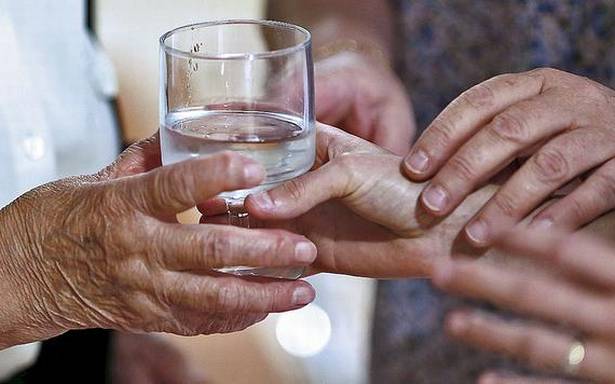No drinking water at farmers’ protest sites; elderly persons vulnerable
Lack of clean drinking water, mobile toilets and sanitation at the five protest sites at Delhi border where farmers have congregated pose a grave health hazard, finds a survey conducted by the People’s Health Movement.
The rapid assessment survey conducted between December 19 and 22 at five sites — Singhu, Tikri, Shahjahanpur, Gazipur and Palwal — recorded responses from 201 participants. Nearly 36% of the respondents were below 36 years of age, 26% were more than 49 years old but below 65 years and around 14% were 65 or above.
According to the study, nearly all respondents said there was no drinking water facility made available by the government and they were mostly dependent on either packaged water or tanks arranged by volunteers. Similarly, water for non-drinking purposes like cleaning, bathing, washing, etc. too was arranged by volunteers (70%) and local residents (18.5%). Only 5.8% respondents said they were able to access supply through government water tanks.
More than half of the respondents (57.5.%) said they had to defecate in the open. The percentage was higher at places like Singhu border where the highest number of protesters have gathered with seven in 10 respondents saying they were forced to defecate in the open. Only one in 10 respondents was able to use mobile toilets arranged by various local and State governments.
Skin infections, aggravated diabetess
As a result, many complained of skin infections at various health camps. The elderly protesters were at a higher risk because of their pre-existing conditions such as diabetes and hypertension. Many of them had reported at medical camps with wound infections because of aggravated diabetes. Protesters sleeping inside the tents or below trucks or tractors despite cold temperatures are also vulnerable to flu.
The People’s Health Movement, which represents 21 networks and more than 150 organisations working on making health care services accessible, demands that the State governments not abdicate their responsibility towards the protesters and ensure basic amenities are extended as well as staff from local bodies are deployed to ensure sanitation.
Source: Read Full Article

